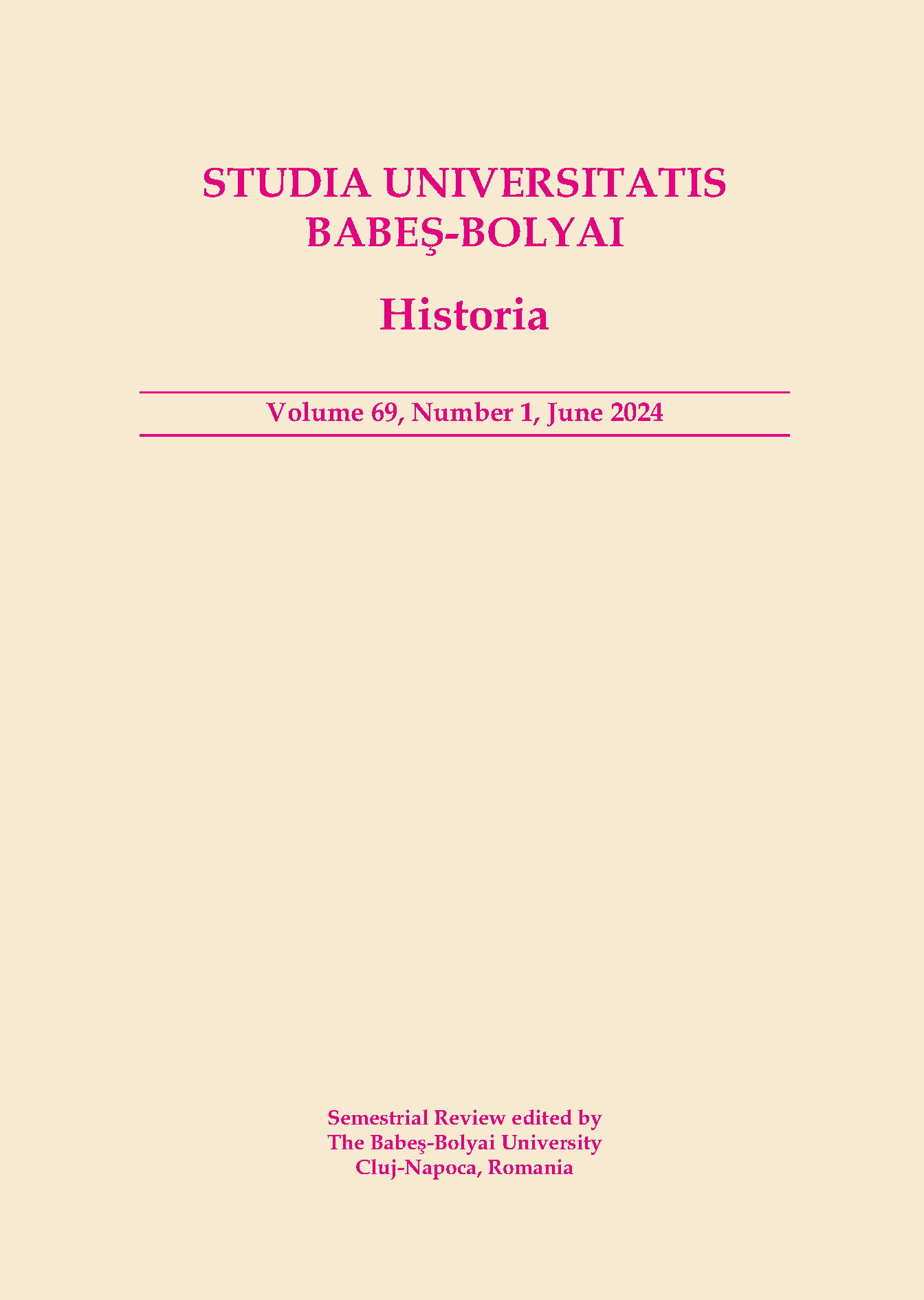Perspectives on the backsliding impact of Helsinki Accords on Romania’s human rights policies
DOI:
https://doi.org/10.24193/subbhist.2024.1.03Keywords:
human rights, the Helsinki Agreements, human rights protection policiesAbstract
The Helsinki Accords and their human rights provisions have been seen as pivotal in fostering dissident networks and improving human rights in East-Central Europe. In Romania, the political culture was characterized by a focus on security over individual liberties. While the Helsinki Accords were intended to promote human rights and cooperation in Eastern Europe, their effect in Romania was counterproductive. The regime’s interpretation of the Accords allowed it to maintain a repressive stance, which, in turn, isolated the country internationally. The Romanian communist leadership viewed the Helsinki Accords primarily as a means to shield itself from external interference, entirely sidelining the human rights commitments outlined in the agreement. This interpretation allowed the communist regime to justify its oppressive policies while presenting a façade of compliance with international norms. As a result, rather than fostering positive change, the Accords contributed to Romania’s isolation on the international stage, particularly as the country became the only one in the Eastern Bloc to see a deterioration in human rights conditions post-signing.
Rezumat: Acordurile de la Helsinki și dispozițiile lor privind drepturile omului au fost considerate esențiale în promovarea rețelelor dizidente și îmbunătățirea drepturilor omului în Europa Centrală-Est. În România, cultura politică s-a caracterizat printr-un accent pe securitate în detrimentul libertăților individuale. În timp ce Acordurile de la Helsinki au fost menite să promoveze drepturile omului și cooperarea în Europa de Est, efectul lor în România a fost contraproductiv. Interpretarea Acordurilor de către regim i-a permis să mențină o poziție represivă, care, la rândul său, a izolat țara pe plan internațional. Conducerea comunistă română a văzut Acordurile de la Helsinki în primul rând ca pe un mijloc de a se proteja de interferența externă, eliminând în totalitate angajamentele privind drepturile omului conturate în acord. Această interpretare a permis regimului comunist să-și justifice politicile opresive, prezentând în același timp o fațadă de conformitate cu normele internaționale. Drept urmare, mai degrabă decât să favorizeze schimbări pozitive, Acordurile au contribuit la izolarea României pe scena internațională, mai ales că țara a devenit singura din Blocul de Est în care s-a observat o deteriorare a condițiilor drepturilor omului după semnare.
Cuvinte-cheie: drepturile omului, Acordurile Helsinki, politici de protecţie ale drepturilor omului
References
Alexandrescu, Mihai, Cetăţenia Uniunii Europene şi avatarurile sale, în Cetăţenia Uniunii Europene, Statut, Identitate şi Perspective, coord. Mihai Alexandrescu Edit. Presa Universitară Clujeană, 2024, p. 13.
Alexandrescu, Mihai, The role of The European Parliament Member: between elections and Parliamentary Duties, in European Parliament: Between Elections and Actions, Edited by Mihai Alexandrescu, Presa Universitară Clujeană, 2024, pp. 9-13.
Tyszkiewicz, Jakub, Human rights and political dissent in Central Europe: between the Helsinki Accords and the fall of the Berlin Wall, pp. 1-6, in Human Rights and Political Dissent in Central Europe Between the Helsinki Accords and the Fall of the Berlin Wall Edited by Jakub Tyszkiewicz, Routledge, 2022.
Morgan, Michael Cotey, The Helsinki Accords and the. Transformation of the Cold War- The Final Act Princeton University Press, pp. 178-183.
Snyder, Sarah B., Human Rights Activism and the End of the Cold War, A Transnational History of the Helsinki Network, Cambridge University Press, pp. 16-33.
Romano, Angela, Détente, Entente, or Linkage? The Helsinki Conference on Security and Cooperation in Europe in U.S. Relations with the Soviet Union, The journal of the societies for historians of American foreign relations, Diplomatic History, Vol. 33, No. 4 (SEPTEMBER 2009), Oxford University Press, pp. 703-722,
Trocan, Laura Magdalena, The evolution of human rights in Romania, Dny práva – 2010 – Days of Law, 1. ed. Brno: Masaryk University, 2010 http://www.law.muni.cz/content/cs/proceedings/, pp. 9-13.
Corpodean, Paula, The Helsinki Accords and human rights in Romania, Acta Musei Napocensis, 60/II, 2023, 167–184.
Petrescu, Cristina, Exit, voice, duplicity Human rights in Romanian understanding (1975–1989), pp. 80-90, in Human Rights and Political Dissent in Central Europe Between the Helsinki Accords and the Fall of the Berlin Wall Edited by Jakub Tyszkiewicz, Routledge, 2022.
Cătănuş, Ana-Maria, A Case of Dissent in Romania in the 1970’s: Paul Goma and the Movement for Human Rights, Arhivele Totalitarismului, Volume XIX, No. 72-73, 3-4/2011, pp. 185-209.
Demeter, Laura, Transnational activism against heritage destruction as a human rights violation in Romania before and after 1989, Revue d'études comparatives est-ouest vol. 51, no. 2/3, Transnational activism and the globalization of anti-communism after 1989 (septembre 2020), pp. 121-150, Presses Universitaires de France, https://www.jstor.org/stable/27197404.
Downloads
Published
How to Cite
Issue
Section
License
Copyright (c) 2025 Studia Universitatis Babeș-Bolyai Historia

This work is licensed under a Creative Commons Attribution-NonCommercial-NoDerivatives 4.0 International License.



